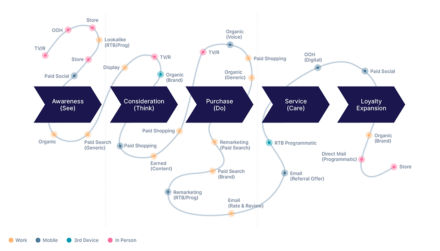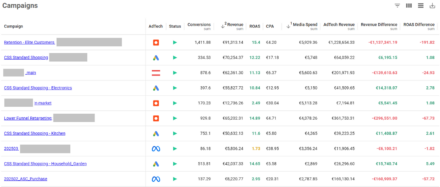Why Accurate Attribution is Key to Recovery in the Travel Industry: Event Review

The travel industry has been turned upside down by COVID-19. A strong recovery will rely on effective marketing that is underpinned by accurate attribution. Crucially, marketing attribution will allow marketers in the travel industry to understand which tactics are most effective and allocate budget accordingly.
We were delighted to participate in the Digital Travel Summit last week, where our CEO and Founder, Chris Liversidge, presented on the role that fixing your attribution solution must play in recovering marketing performance and driving accelerated reach.
Here are the key takeaways from Chris’ presentation:
Travel marketers need to adapt to new demographics and platforms
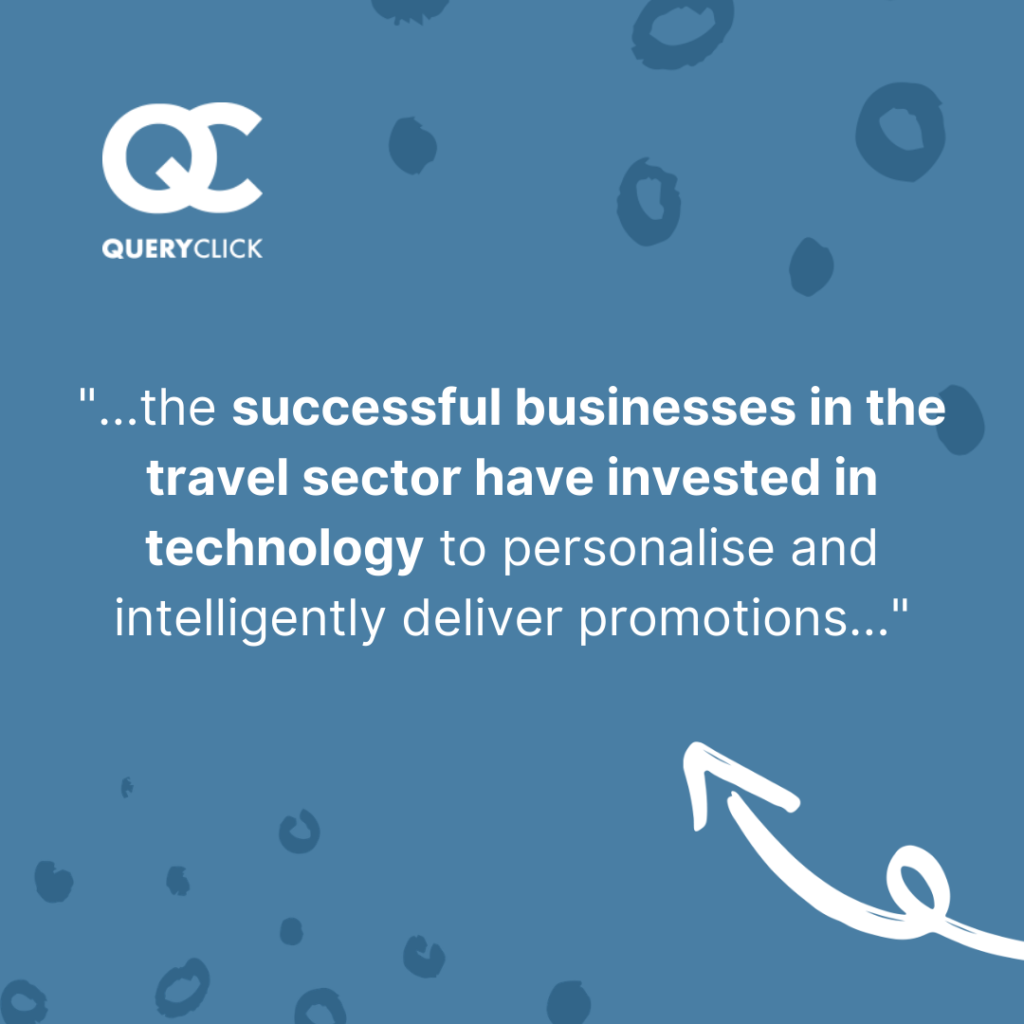
90% of travel marketers have been forced to slash their budgets, according to Skift Research. COVID-19 has led to plummeting demand and changes in customer behaviour and the deep cuts have been harshest in Paid Search and Paid Social – the two most historically dominant ad channels for the sector.
But recovery is in sight, and there are some important learnings we can take from the travel sector – particularly from countries that are further through the pandemic, such as China.
According to a report from Gartner, China’s travel sector recovery has been driven by the local market and by targeting a younger demographic. Social Media has played an essential role in this, with emerging platforms such as Tik Tok acting as key growth drivers for the sector.
Investing in technology has also been essential to business recovery.
As Chris summarised: “…the successful businesses in the travel sector have invested in technology to personalise and intelligently deliver promotions, which has been a key driver of re-engagement with the travel sector by that customer demographic.”
To do this effectively you need solid marketing attribution, and increasingly siloed marketing channels are making this difficult.
Attribution is essential to recovery – but good attribution is lacking
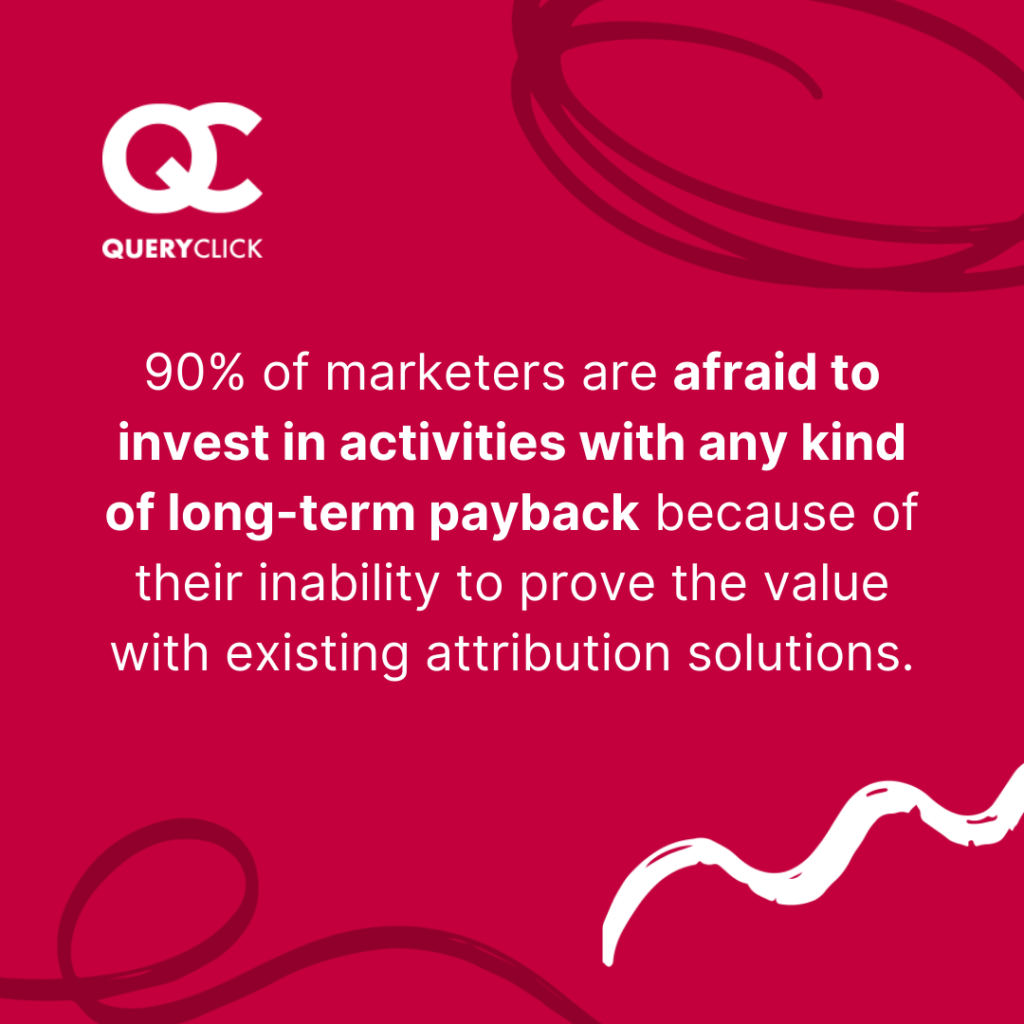
“In 2021, it’s predicted that you’re going to have about 30% more data in silos than we had as marketers back in the days of 2011 and 2010,” Chris explains. “Back then, digital spend was predominantly with Google and in paid search.”
Nowadays there are an increasing number of isolated channels that marketers must choose between for investment, including the likes of Facebook and Programmatic Display.
Good attribution is essential in allowing marketers to effectively operate across these different silos and identify their potential for ROI. Unfortunately, existing attribution solutions are severely lacking.
A survey carried out by QueryClick in 2019 found that almost 90% of marketers are afraid to invest in activities with any kind of long-term payback because of their inability to prove the value with existing attribution solutions.
Most digital marketers are forced to rely on flawed methods of attribution, such as last-click, to make important decisions around spend. These models provide only a limited view of the true customer journey, which is likely to result in wasted budget and reduced ROI.
6 Reasons Why Attribution Matters More Than Ever Before – Read Now
Good quality data is paramount in fixing broken attribution
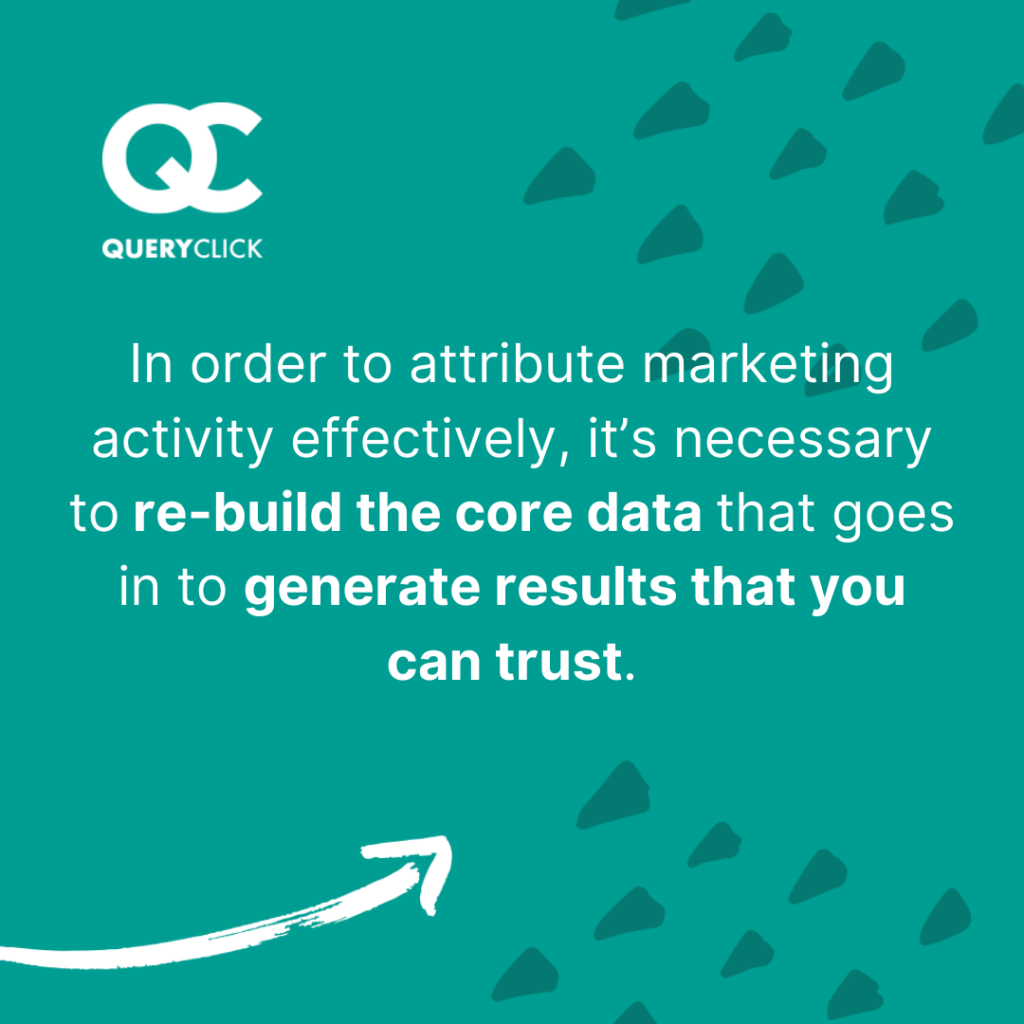
The key to solving the problem of broken attribution can be found in the underlying data. In order to attribute marketing activity effectively, it’s necessary to re-build the core data that goes in to generate results that you can trust.
“When you look at the raw data being collected and reported in Google Analytics and Adobe Analytics – which represent over 98% of the analytics market today – there was actually more data that was unavailable for attribution than data available for attribution,” Chris explained.
“What do I mean by unavailable? I mean data that doesn’t represent more than a brief single visit instance, and data that is broken. So, data that’s not mappable to any meaningful report or marketing channel.”
As the purpose of attribution is to try and create a picture of the customer journey and look at the value of different marketing touch points, the answer lies not in the model that you choose, but in the data you feed into it.
“We see time and time again very poor quality data being fed into attribution models. And ultimately that’s the reason why, as marketers trying to make tactical decisions, often we’re unable to use the results it’s provided.”
The only way to take back this data accuracy is to invest in an attribution platform that completely rebuilds it.
Meet Corvidae – your solution to the attribution problem
This is where Corvidae – our proprietary solution to the attribution problem – comes in.
Corvidae tackles the problem of flawed underlying data by reconstructing it from the ground-up, providing attribution that goes right down to the individual.
We’re currently working with the University of Edinburgh’s School of Informatics to produce a new type of attribution that uses neural network models. These allow you to access much more granular visit-level insights and identify the individual behind the click-stream data for an accurate picture of their purchasing journey.
This data is then combined with cutting edge automated multi-channel modelling, resulting in attribution that you can trust to make informed decisions around marketing spend.
Eliminate wasted spend and maximise your ROI with Corvidae – find out more
In Conclusion…
It’s been a difficult year for the travel marketing industry but there are a few things marketers can do to ensure they come out stronger in the days ahead.
- Embrace new demographics and emerging platforms
- Tackle their flawed underlying marketing data
- Invest in an attribution solution – like Corvidae – that they can trust
And that’s the round up! Make sure to keep an eye on our blog to stay up to date with more news and insights, and secure your place at one of our upcoming events.
Own your marketing data & simplify your tech stack.
Have you read?
Chrome’s announcement on dropping cookie opt-in last month closed the door on a 5 year saga for marketers. But what is the landscape like in 2025 for cookie-based measurement?
Generative AI is transforming the way that marketers plan and assemble content for their Paid Ads. As big platforms like Google, Meta and TikTok increasingly build the tools needed to...
In a surprising move that has sparked heated debate, Mark Zuckerberg announced on his Instagram that Meta will be reducing its levels of censorship and in particular fact-checking on its...
